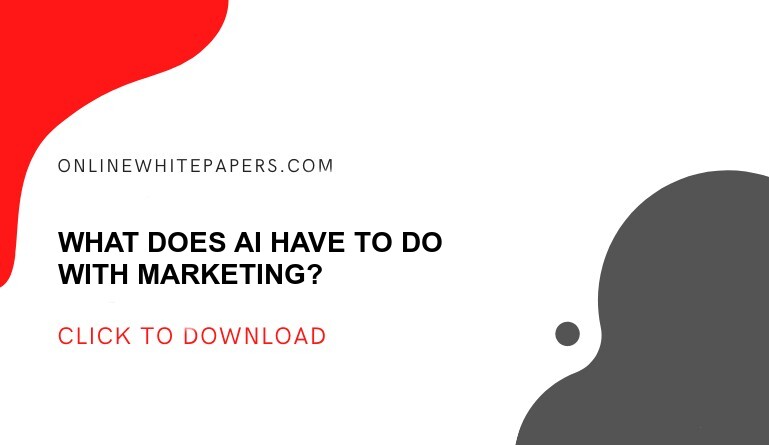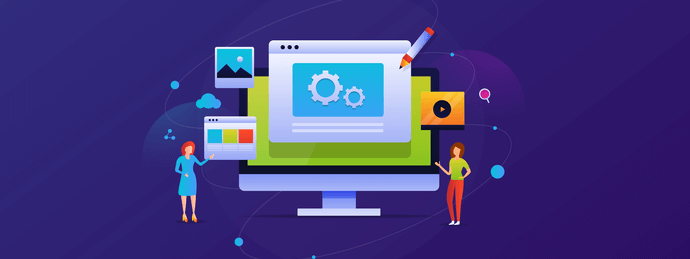As an umbrella concept, “AI” encompasses a wide spectrum of intelligent technologies that are self-learning and self-improving.
Today’s search is too sophisticated for humans or traditional machines to manage. A staggering 63,000 searches are processed by Google alone per second, amounting to over two trillion searches per year.
Even the largest human search team would be fatally overwhelmed by the sheer volume of results. Not to mention that traditional software, which does not have the ability to identify patterns in data or forecast outcomes, is woefully inadequate for the task.
In order to provide real-time, correct search results at this scale and speed, it is unfeasible to do so without AI.
Let’s take a closer look at how search engines make use of AI.
What Role Does AI Play in Search?
Search engines rely heavily on artificial intelligence (AI) to rank web pages, videos, and other content.
In order to rank content, Google (as well as other search engines) use advanced artificial intelligence (AI). These AI systems prioritize a wide range of factors, from the types of keywords in your content to the user experience of your website.
Google’s artificial intelligence uses a combination of these parameters to decide which pages to display in response to a search query.
However, no one outside of Google has full insights into the algorithm’s decision-making processes, although the company provides guidance on what matters most to its system of algorithms.
Indeed, much of modern search marketing is focused on learning as much as possible about how this AI works, in order to rank content in search results.
An in-depth focus on how Google uses AI in search
AI in search engines is best understood by looking at how Google utilizes the technology.
The Algorithm at Google
Google’s “algorithm” is often used to describe the process through which the search engine provides results. There is a great deal of focus on “algorithm adjustments” that have an effect on search traffic for many businesses.
There are many aspects to Google’s “algorithm.” The algorithms that govern which search results pop up and how they appear are a sophisticated network of AI components.
Many SEO marketers want to learn as much as possible about these algorithms in order to do well on the search engine results page (SERP).
Google, on the other hand, routinely provides details on the AI system’s dynamics. It’s quite evident that this is the case:
Google’s AI search algorithms are designed to offer the best possible answer to each and every query. When we say, “highest quality result,” we don’t only mean the most relevant material; we also mean the best on-site experience.
Today, the only way to “beat the algorithm” is to create incredibly high-quality content that is meant for humans, not algorithms.
RankBrain
In Google’s intelligent search engine, RankBrain is a critical aspect of artificial intelligence. This technique aids Google in determining what subjects are relevant to your search.
BERT
BERT (Bidirectional Encoder Representations from Transformers) is a sort of artificial intelligence (AI) that Google utilizes to better grasp the meaning and intent of search queries.
MUM
Google also employs MUM in its AI-driven search engine. MUM, which stands for Multitask Unified Model, is a more powerful variant of BERT.
What Marketing teams need to know about the various elements of AI-powered search for effective results
Today’s leading AI marketing solutions include the following components:
Machine Learning
Artificial intelligence (AI) is at the crux of machine learning, which utilizes computer algorithms to evaluate data and learn from past events. With the help of machine learning, devices can examine new data in the scope of relevant historical facts that may be used to guide future decisions.
Big Data and Analytics
Data influxes from digital media have allowed marketers to better analyze their efforts as well as precisely attribute value to each of their marketing channels. Many marketers are having difficulty deciding which data sets are worthwhile to collect, which has resulted to a data oversupply.
AI Platform Solutions
Efficient AI-powered solutions supply marketers with a central hub for managing the massive amounts of data collected by these platforms. As a result of these platforms, you’ll be able to make data-driven decisions about how to reach your target audience.
Benefits of AI-driven search to marketers and SEO teams
A better understanding of your audience: Artificial Intelligence (AI) can help you gain a deeper understanding of your customers and their purchasing habits. Using this technology, you may more successfully reach a specific audience. Customer happiness and engagement are also boosted by this strategy. Marketers may also simply convert a lead into a sale utilizing AI-driven techniques at the best potential times to generate conversions.
Productivity boost: Using AI, you may effortlessly automate a number of tedious and time-consuming operations. You’ll be able to get more done in less time, which will save money and resources.
Effective marketing: Assumptions about how to sell are no longer relevant thanks to artificial intelligence (AI). AI-driven data analysis and services can help you create a more successful digital marketing plan.
Increase In ROI: An increase in return on investment (ROI) is one of the many benefits of using artificial intelligence (AI). If you can obtain a better handle on the demographics of your target audience through digital marketing, you’ll achieve greater results.
Enhancement of the User Experience: Using AI in marketing, you may target your message to the most appropriate audience. As a result, customers are happier because they are able to find what they seek. Customers are more likely to be drawn to firms that use AI in their marketing techniques, according to reports.
Final Thoughts
Marketers now have the ability to foresee future trends thanks to AI. Using these statistics, they can then decide how to deploy their funds and who to target. It is possible for brands to save money (and time) by reducing the amount of effort and money spent on digital advertising waste.
As a result of implementing AI, firms can produce more focused and clever advertising. You can both increase sales and save money by incorporating AI into your agency’s digital marketing approach.
AI in search engines has the potential to improve sustainability, scalability, and global trends on a bigger scale. It will have a significant impact on cities, government, and even politics. Indeed, it can make the world a better place if used correctly. What are you waiting for? Begin the implementation of AI in your marketing campaigns today.










